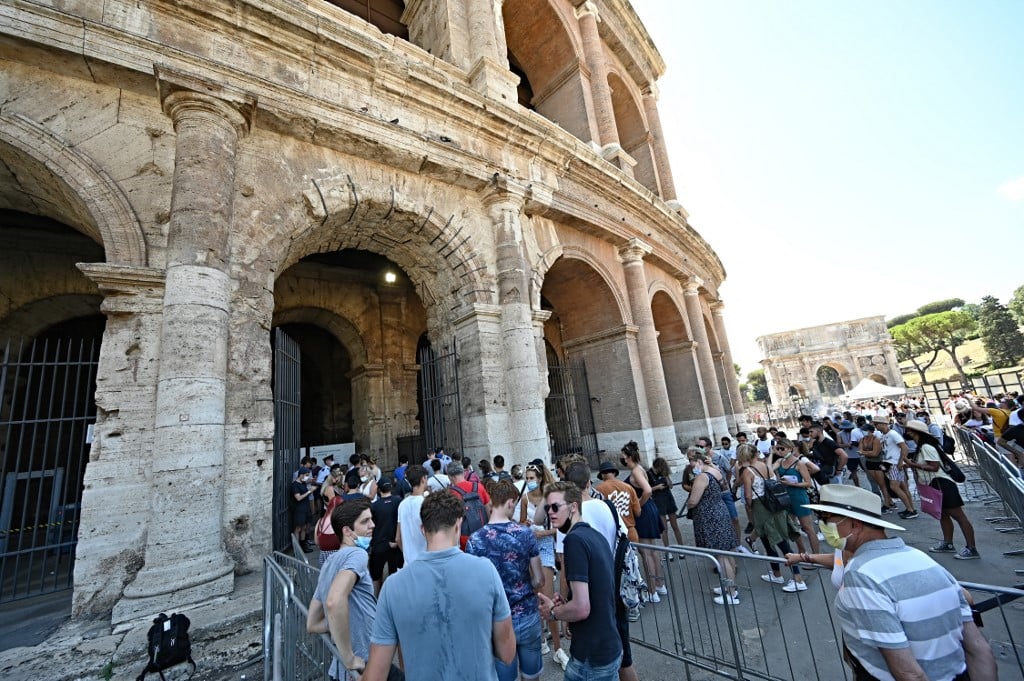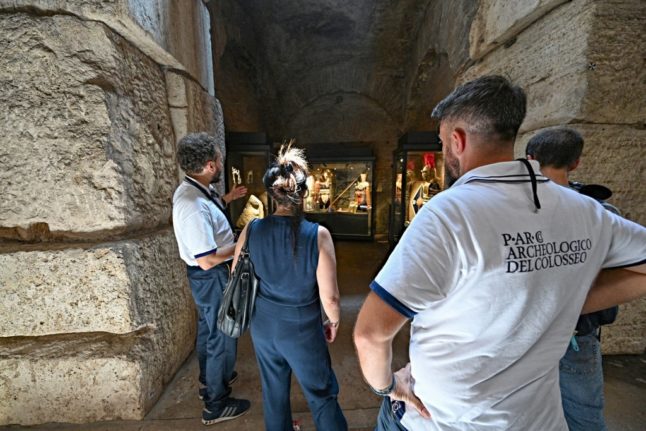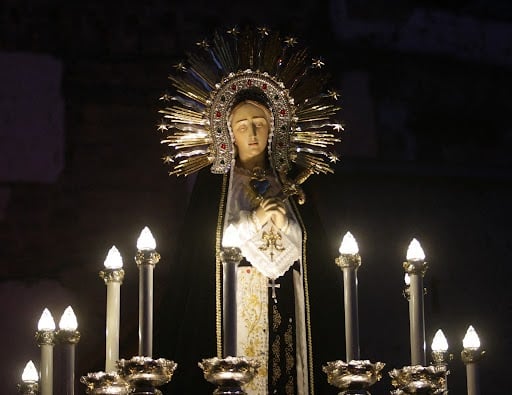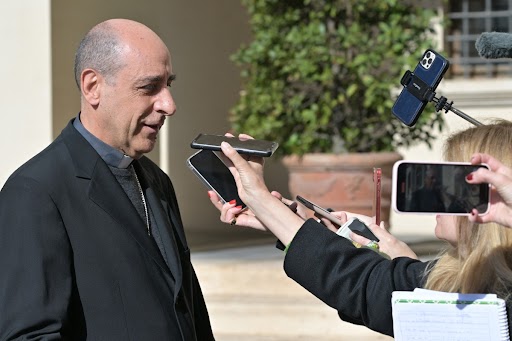Changes intended to make official tickets for Rome’s Colosseum easier to purchase will come into effect from Wednesday, after Italy’s culture ministry announced the first details of the new system on Monday.
READ ALSO: Rome’s Colosseum introduces named tickets to combat touts
Rome Mayor Roberto Gualtieri hailed the move as a “positive innovation that we’ve been asking for for some time.”
The changes will “help reduce the phenomenon of ticket scalping, queue-jumping and mass purchases of tickets which manipulate the price,” he told reporters on Tuesday.
If you’re planning to visit any time soon, here’s how you get a ticket.
What’s changing?
The main change is that tickets to the Colosseum are now named. That means you’ll need to show ID with your ticket when you arrive, and you won’t be able to visit without identification that matches your named ticket.
It should also now be easier to get hold of tickets both online and in person, after months of complaints from visitors that tickets were frequently sold out.
Official online ticket sales will now be through the official website only, at www.colosseo.it. They will no longer be sold via the Società Cooperativa Culture (CoopCulture) website, which was previously the official online vendor.
READ ALSO: Italy investigates inflated prices for Colosseum tickets
For in-person sales, a new ticket office has been opened near the Colosseum at Largo della Salara Vecchia in addition to the existing one at Piazza del Colosseo, the culture ministry said.
The number of physical tickets available at ticket offices has been doubled to keep up with demand.
Individual visitors can also purchase tickets by phone from the official call centre or through the ParcoColosseo app,

It’s currently unclear what the best option is for those looking to book group tour tickets, with methods for tour operators to be announced in the next few days, according to the Colosseum’s website.
Cinzia Renzi, President of tour operators’ association Assoviaggi, said that the ticketing system will be difficult for travel agencies to manage, as half of tourism in Rome is organised tourism.
At present you may need to contact the Colosseum’s management via the official website if you want to book a group tour.
What identification will I need?
Suitable ID to be shown with your ticket on arrival includes:
- Passport
- Identity card
- Driving licence
Why has this rule been implemented?
The culture ministry said it was bringing in the rules to prevent resellers using automated software to buy up the tickets online and sell them at higher prices elsewhere.
The change comes after Italy’s competition watchdog launched an investigation in July into Società Cooperativa Culture (CoopCulture), as well as the websites Tiqets, Musement, Viator and GetYourGuide, following complaints from visitors who found official tickets were frequently unavailable to purchase.
How much do tickets cost?
A regular 24-hour ticket is currently priced at €16 and allows access to the first and second floors of the Colosseum plus the Roman Forum and Palatine. The reduced fare for the same tickets is €2. Visitors are advised to come 10 minutes before their time slot begins.
Entrance is free on the first Sunday of every month.
What are the opening hours for the rest of the year?
Until October 28th, the opening hours are from 9am – 6.30pm daily with the last entrance being at 5.30pm.
From the October 29th until December 31st, regular opening hours are from 9am – 4.30pm.
The culture ministry confirmed on Monday that special ‘Luna sul Colosseo‘ evening guided tours of the underground rooms would also continue between 6pm and 10pm Tuesday to Saturday until December 31st.
The Colosseum is Italy’s most popular landmark, with a record 2.2 million tourists visiting this summer.




 Please whitelist us to continue reading.
Please whitelist us to continue reading.
Member comments